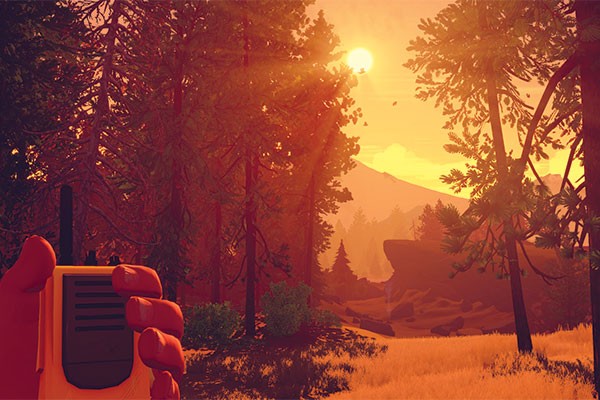Here’s a quick history of popular video games. It starts with the arcade, with players putting quarters into machines over and over, beating high scores and paying for the privilege. These arcade games developed out into what is now arguably the largest entertainment industry in the world. For comparison, James Cameron’s Avatar made history by earning a billion dollars within nineteen days of release; it took Activision’s Modern Warfare 3 sixteen days. With that kind of money flying around, it’s no wonder there’s a strong culture of games like Call of Mega-Creedfare 3. Hype is the name of the game, and boy, the industry knows how to play it.
The next step in the history of video games is pretty unsurprising. Some players got tired of hype and grenades and shitty twelve-year-olds with microphones, and they went looking for a more ‘genuine’ experience - something with real feeling. There was a growth in the number of games investigating narrative, character and emotion. Unsurprisingly, some of them were saccharine. Unravel is the latest release to come under fire for being grossly gauche - which, for me, is more of an observation about the state of the industry than an attack on the game itself.
In the midst of this counter-movement towards emotion and narrative, one that’s already losing its utopian sheen, we have Firewatch. It’s a good, confident, sure-footed, and very quiet game. It’s utterly indifferent to both the hype surrounding Call of Vajazzle 3 and the hype around ‘emotional’ games. The plot revolves around Henry, a guy who takes up a job as a volunteer fire lookout to get away from the world for a bit. It’s set in the wilderness of Wyoming in the wake of the 1988 Yellowstone Park fires, and it tells a story about solace, companionship, and responsibility. I’m not going to tell you anything about the story, because it’s a good story, and it’s worth going in blind.
It’s debatable whether Firewatch can be classified as a game. Most would probably include it in the walking simulator genre, in the same vein as Dear Esther or Gone Home. I’ve got nothing against these titles, but they aren’t technically ‘games’, because there’s no competition. That lack of competition changes how you think about what you’re doing. There’s no point complaining that Firewatch isn’t challenging enough in terms of gameplay, for instance, because it’s not competitive in the first place.
Yes, it’s a walking simulator, but it also avoids many of the genre’s shortcomings. I’m dissatisfied by only getting to explore in a game. I want a purpose and a goal, and Firewatch gives me that in the form of straightforward day-to-day tasks in the Wyoming wilderness. It also avoids completely isolating the player, which is exciting. It’s common knowledge in theatre that one-person shows are difficult to pull off, because there’s no dynamic on the stage. When two people are interacting, there’s negotiation, relationship, development - all these lovely things that go into making up a story. Most video games haven’t really figured this out yet. One of the main features of Firewatch is your handheld radio: if you spot something interesting while doing your chores around the forest, you can chat to another fire lookout about it. These opportunities for conversation punctuate the solace of the wilderness. At points I found myself hoping to stumble across something conversation-worthy, just to hear a bit more humanity.
In some ways, there’s not a lot to say about Firewatch. When you talk about a game’s virtues, there’s often an unspoken qualifier: ‘for a game’. It’s got a good story - for a game. It’s got great character development - for a game. Firewatch is nice because I don’t feel like it needs any of those qualifiers. It’s a well-paced, well-constructed story with solid characters. I don’t think I’ve ever seriously said that about a video game before - at least, not in the same way I’d say it about a movie or a book. It’s a miracle to find all of that in a video game. At the same time, Firewatch is not a game that wants to be hyped. It’s good, it knows it’s good, and it’s happy being what it is without any gushy bullshit.







